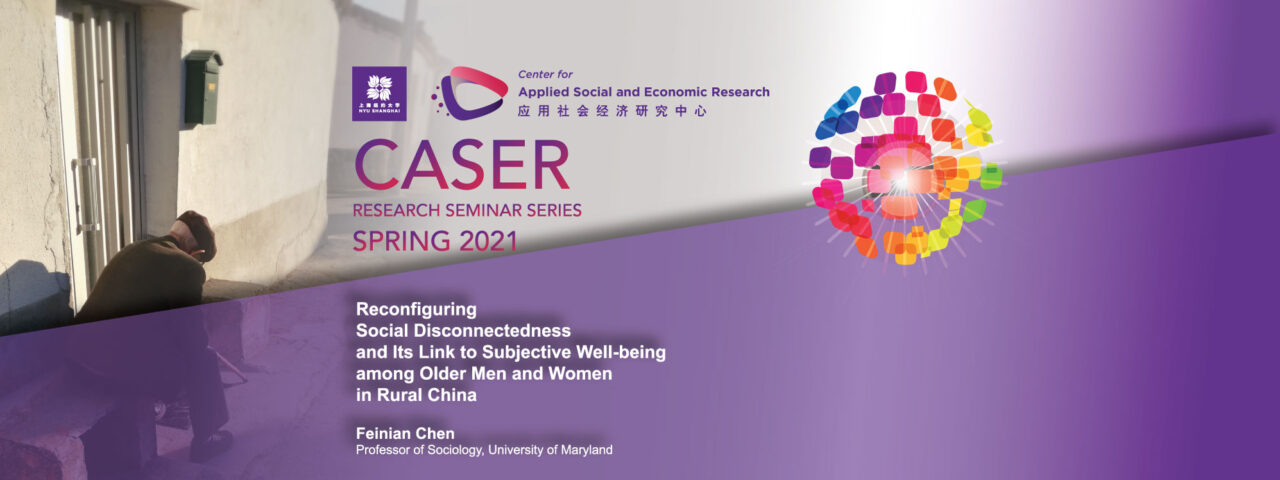Share:
Reconfiguring Social Disconnectedness and Its Link to Subjective Well-being among Older Men and Women in Rural China

- Feinian Chen, University of Maryland
- 8:00-9:30 pm(GMT +8:00), Thursday, April 15, 2021
- Seminar hosted via Zoom
Abstract
Lack of social ties, or social disconnectedness is known to be associated with worse mental health outcomes. Social disconnectedness manifests in different forms, such as living alone, having a small social network, or feelings of loneliness. Despite overlapping characteristics, the conditions are distinctly different from each other. How different forms of social disconnectedness are combined to influence mental health is an underexplored question in the literature. In this paper, we examine the associations between three forms of social disconnectedness (social isolation, loneliness, and living alone) and subjective well-being (life satisfaction and depressive symptoms) among older adults in rural China. Using a longitudinal study of older adults in Anhui Province, China (2015–2018), we examine the independent, additive, and interactive effects of the three forms of social disconnectedness on subjective well-being. We find that those who are exposed to all three forms of social disconnectedness suffer from the highest depressive symptoms and lowest life satisfaction. Moreover, the different combinations of social disconnectedness affect older adults’ subjective well-being in diverse ways. The adverse effects of social disconnectedness on subjective well-being are found to be stronger for women than for men. The results underscore the necessity for targeted policy intervention for subpopulations with differential needs.
Biography
Feinian Chen is Professor of Sociology and a faculty affiliate at the Maryland Population Research Center at the University of Maryland. She received her PhD in sociology from the University of North Carolina at Chapel Hill in 2001 and was trained in social demography at the Carolina Population Center. Her research crosscuts a range of areas in demography, family sociology, gender, aging, and quantitative methodology. Her main research interests include women’s work and family, intergenerational relations, population aging and health. Her work has been published in the American Sociological Review, Social Forces, Demography, Journal of Gerontology: Social Sciences, Journal of Health and Social Behavior, Journal of Marriage and Family, and Sociological Methods and Research. Her work has been funded by the National Institutes of Health and the Hewlett Foundation. She is actively engaged in research in family transitions, gender dynamics, and their health implications in the diverse contexts of China, India, the Philippines, and the U.S.

